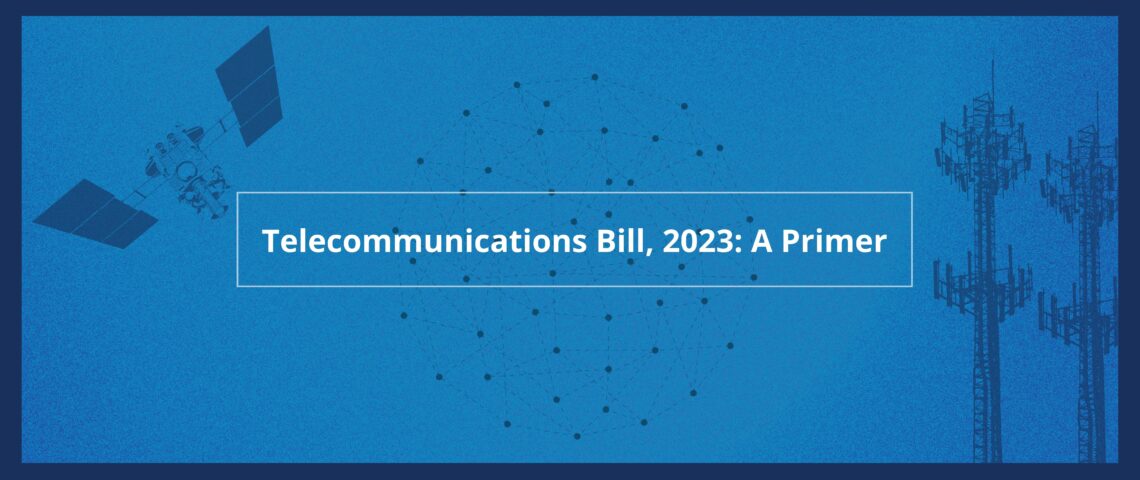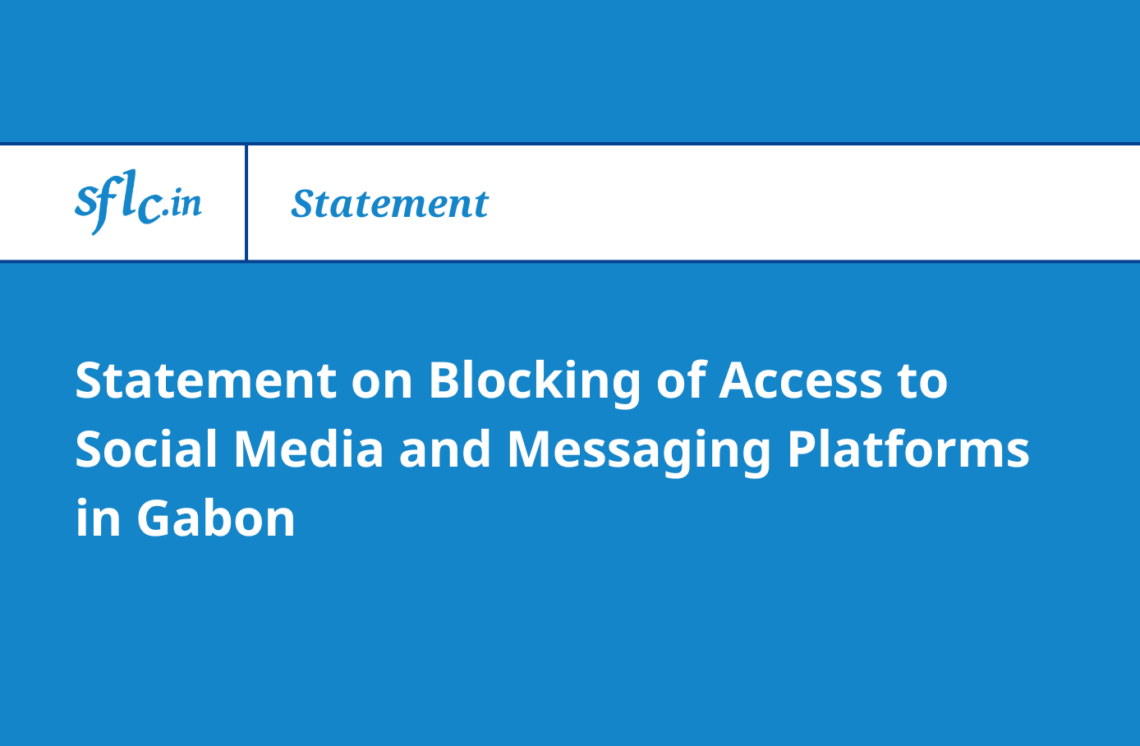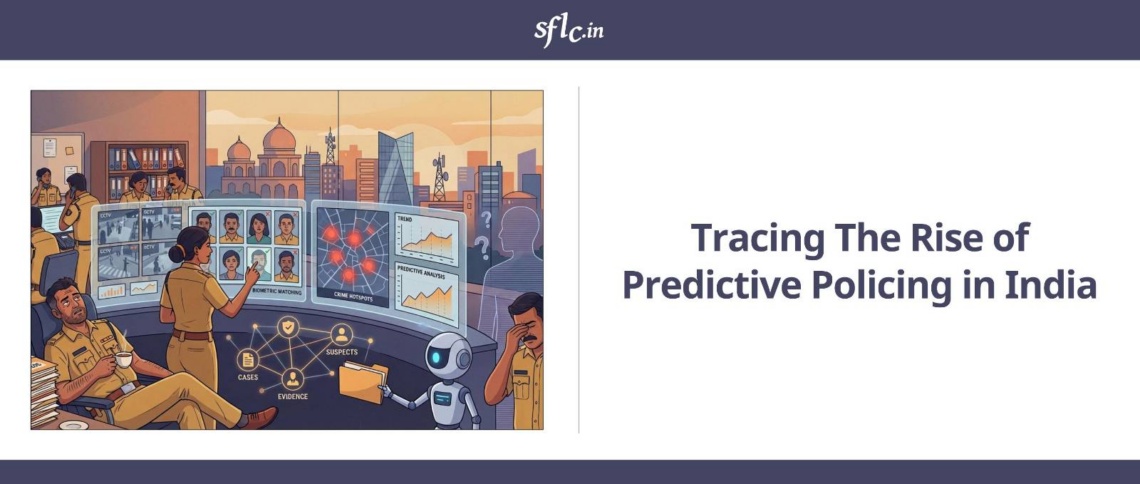On December 21, 2023, The Telecommunication Bill, 2023 was passed by the Rajya Sabha (“the Bill”). Previously, it was passed by the Lok Sabha on December 18, 2023, having received the cabinet nod in August this year. The Bill, which was introduced in Lok Sabha through the supplementary list of business, was passed from both Houses with minimal debate and with most of the opposition Members suspended.
India’s telecommunications sector plays a crucial role both economically and socially. This sector provides universal, resilient, and secure services to citizens across rural and urban areas, essential for approximately 750 million Indian individuals to access the Internet. As the predominant medium of communication, telecommunications facilitate the realisation of constitutional promises such as freedom of speech and the dissemination of knowledge. It is integral to maintaining social connections, enabling work, and accessing information. Consequently, regulations governing networking technologies significantly impact the daily exercise of rights and duties by Indian citizens.
So, what changes now?
After their passage from both Houses, the President’s assent and subsequent notification of the legislation will usher in this new law that will govern the dynamics of interaction, communication, and expression within the digital realm, while stipulating certain prohibitions.
The concerns surrounding the Telecommunications Bill are multifaceted due to various flaws, ambiguities, and potential adverse impacts on the digital rights of citizens.
According to Clause 4 of this law, the Central Government will assume full authority over the allocation and management of spectrum, an essential resource for wireless communication services such as the Internet. This shift in control could potentially pose challenges for State Governments in providing free or low-cost broadband services to their citizens. A notable instance of such state-level initiatives is the K-FON project initiated by the Kerala Government. This new legislation may significantly reshape how digital communication infrastructures are accessed and managed nationwide.
One critical aspect is Clause 3(7), which pertains to the requirement of verifiable biometric-based identification. This clause empowers the Central Government to require biometric data, such as iris scans and fingerprints, without stringent regulations safeguarding individual rights. This approach appears to be in conflict with the Supreme Court of India’s ruling in the landmark case of Justice K. S. Puttaswamy vs Union of India (2017), where it was affirmed that privacy is integral to the right to life under Article 21 of the Constitution. Justice Chandrachud, in this case, underscored the necessity of keeping biometric data anonymous.
The implementation of this law could inadvertently inhibit free speech, as individuals might be deterred from expressing themselves openly due to these identification requirements. Additionally, in the context of frequent data leaks and breaches, the demand for biometric data exacerbates cybersecurity concerns.
Furthermore, using biometrics for identity verification might contravene Article 14 of the Indian Constitution. Certain individuals may be unable to provide biometric data due to health or other reasons. The absence of alternative verification methods not only undermines the constitutional principle but also potentially violates the ethos of Article 21, which emphasises the protection of life and personal liberty. This aspect of the Bill, therefore, raises significant concerns about its alignment with established constitutional principles and the overarching right to privacy.
The concerns regarding Clause 20 of the Telecommunications Bill can be dissected into three main parts: Possession, Intercept, and suspension of communications.
Clause 20(1) – Possession
Clause 20(1) of the Bill grants the Central Government, State Government, or their officers the authority to temporarily assume control of certain assets in the event of a ‘public emergency’ or for ‘public safety.’ However, the absence of clear definitions for ‘temporary possession,’ ‘public emergency,’ or ‘public safety’ in the Bill bestows extensive power on the government without well-defined guidelines. This provision does not necessitate a formal declaration of an emergency under existing laws, such as the Disaster Management Act, leaving the interpretation and application of this clause to the government’s discretion.
This issue echoes concerns raised in the Supreme Court case of PUCL v. Union of India (1996), where the necessity for more protective measures, such as formally declaring a ‘public emergency’ and clearly defining these terms, was emphasised. Although these recommendations were made in the context of the Telegraph Act, their relevance extends to the current legislation.
Clause 20(2)(a) – Interception
Under Clause 20(2)(a), the Bill empowers authorities to intercept or monitor communications. This interception is not limited to matters of national security or maintaining diplomatic relations but extends to preventing the encouragement of any criminal activity, including minor offences. The wide terminology of the provision allows for unchecked monitoring of communications online. Such disproportionate powers infringe on citizens’ right to privacy under Article 21 of the Constitution.
Clause 20(2)(b) – Communication Shutdowns
This clause allows for the cessation of communication services using the same criteria as interception. This power could potentially undermine the Supreme Court’s decision in the case of Anuradha Bhasin v. Union of India (2020), which recognised access to the Internet as a fundamental right crucial for freedom of expression and economic activities. The lack of clear guidelines and defined standards for communication shutdowns poses a risk of misuse. Moreover, the Kerala High Court, in Faheema Shirin v. the State of Kerala case, has declared the right to Internet access as a fundamental right forming a part of the right to privacy and the right to education under Article 21 of the Constitution. The court held that, in an information society, unequal access to the Internet creates and reproduces socio-economic exclusions.
The Parliamentary Standing Committee on Communications and Information Technology, in its December 2021 report, had previously suggested measures for managing Internet shutdowns, including maintaining a central record of all such shutdowns in the country and exploring less disruptive alternatives. They also emphasised the importance of clearly defining the reasons for such actions. Unfortunately, these recommendations have not been incorporated into the Bill, leaving a widening gap in the legislation to balance state power with citizen rights and freedoms.
Why is this important?
Firstly, legal obligations necessitate attention. As per Clause 29 of the Bill, users are mandated to refrain from disseminating false information, withholding material information, or impersonating another individual. Additionally, when required by law, users are obliged to provide relevant information.
However, the reasons for concern extend beyond mere legal compliance. Living in an era where telecommunications are ubiquitous, the impact of these regulations on a citizen’s rights and daily communications is profound. Awareness of the ongoing developments in the country’s telecommunications sector is not just a matter of civic duty; it is essential, given our deep dependence on these services. Understanding these changes is crucial, as they directly influence how we interact and function in our digital environment.
SFLC.in will be updating the blog with an in-depth analysis of provisions of the Telecommunications Bill, 2023 and its impact. Stay tuned.




